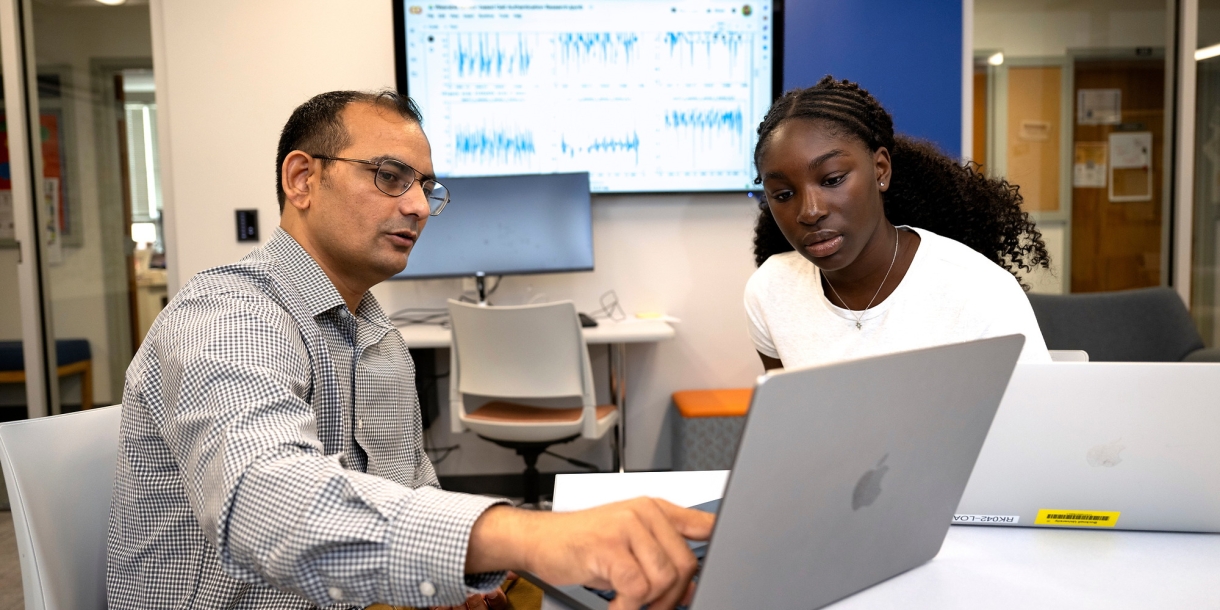Academic Advising

At Bucknell, members of the faculty serve as the primary academic advisers for students. Academic advisers serve as an important and valuable resource for you throughout your time at Bucknell. Academic advisers will help you plan for your entire Bucknell career, help find you resources for academic and co-curricular success, provide suggestions for courses that meet your personal interests, give you tools to help you select a major or minor, and more. To get the most out of advising, you should meet regularly with your adviser throughout the academic year and throughout your time at Bucknell.
Find more advising resources in My Bucknell Web or Moodle (login required).
Academic advising at Bucknell is an intentional and collaborative relationship in which faculty empower students to develop and pursue their academic programs and learning goals.
Bucknell Mission for Academic Advising
Who is my adviser?
Members of the faculty will serve as your primary academic advisers throughout your time at Bucknell.
First-year and new transfer students will be assigned an adviser just before their first semester and will meet them for the first time during or shortly after New Student Orientation. Each of the three colleges also has its own summer advising program designed to help ensure your strong start at Bucknell before a faculty adviser is assigned. Each college is different, but in general, you'll be invited to watch videos, attend webinars and review online resources during the summer before your first semester. Your first-year adviser will either come from the department or program associated with your declared major or from your college.
Once you have declared a major, you will be assigned a faculty academic adviser associated with that department or program. Students with more than one major will have an academic adviser for each major. Students who do not have a declared major will be assigned an academic adviser based on their college.
If you are unsure who your academic adviser is, see your Academic Progress Report (APR) in Banner Self-Service. If you think there is an error with your adviser assignment, you should contact your college dean's office:
They will work with you to assign an appropriate faculty academic adviser. You also have access to a secondary academic advising structure.
Why should I see my adviser?
You should regularly be in touch with your academic adviser. Their primary objective is to help empower you to find your academic path to meet your personal academic goals.
Your academic adviser will help you:
- Develop an academic plan
- Chart a path through course requirements and opportunities for exploration
- Find ways to explore different academic disciplines, including areas related to and beyond your major interests
- Understand and navigate your graduation requirements
- Recognize educational opportunities outside of the classroom
- Learn about and use tools to plan your educational experiences
- Understand course selection and your Academic Progress Report
- Connect with additional support resources on campus
- Learn about and explore opportunities like study abroad, undergraduate research, Bucknell job and internship resources and more
When should I see my adviser?
Individual advisers take varied approaches to engaging with their advisees, in person, by email or via other formats. Often, your adviser will check in with you periodically by email to see how things are going. If you haven't spoken to your adviser recently, specific times to contact them include:
- In the first two weeks of classes if you have any concerns about your Academic Progress Report or success
- Four to six weeks into the semester to check in about what is going well and where you recognize opportunities for improvement
- In the middle of the semester, two to three weeks before course registration, when you will have a pre-registration advising meeting to discuss and plan for the upcoming semester and where you will receive your registration PIN
- If you are thinking about study abroad (even if it's a year or two in the future)
- If you are having difficulty in class
- If you are considering dropping a class
- If you are considering changing your major, or adding a major or minor
Advising for Students Exploring Graduate Studies
Graduate School
Graduate school advisers can help you decide if a master's, Ph.D. or other post-graduate program is the right choice for you, identify programs to suit your needs and direct you to opportunities to support your studies.
Pre-law
Pre-law advising can help you identify courses, extracurricular activities and internships to put you in the best position for gaining admission to your top-choice law schools.
Pre-health
Pre-health advising is for students interested in the health sciences, including, but not limited to, medicine, veterinary medicine, dentistry, pharmacy, physical therapy, nursing and public health.